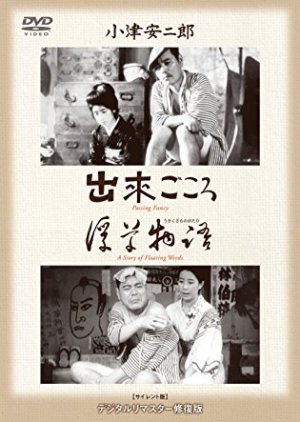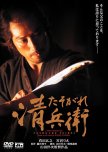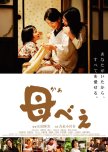Two Tokyo co-workers come across a destitute young lady in search of a place to live. (Source: IMDb) Edit Translation
- English
- magyar / magyar nyelv
- dansk
- Norsk
- Native Title: 出来ごころ
- Also Known As: Dekigokoro , Deki Gokoro
- Screenwriter: Ikeda Tadao
- Genres: Comedy, Drama
Cast & Credits
- Sakamoto TakeshiKihachiMain Role
- Iida ChokoOtomeSupport Role
- Obinata DenJiroSupport Role
- Aoki TomioTomioSupport Role
- Fushimi NobukoHarueSupport Role
- Ryu Chishu[Man on boat]Bit part
Reviews

This review may contain spoilers
"Everyone yearns for love"
Before Director Ozu focused on upper-middle class families and father-daughter relationships, he evaluated the working class in this film. In Passing Fancy, the focal relationship was between a flawed father and son who could wind each other up but could also show incredible affection for each other.Kihachi is a widowed father who works in a brewery with his younger buddy, Jiro. After attending a book reading with a shamisen accompanying (Naniwabushi), the two men stumble across a young woman with no family and no job. Jiro votes to leave her behind, but Kihachi asks the local café owner, Otome, to take her in. Kihachi becomes quickly smitten with Harue, however, she sees him only as a kindly uncle. Jiro tends to be a jerk when he's around her and begins to avoid the café. Tomio doesn't approve of his dad's attention for Harue either. When Tomio is taunted about his dad's illiteracy and penchant for drinking after work, Kihachi tosses him 50 sen and tells him to buy whatever he wants, hoping the boy can feel rich for a day. Tomio uses the money to buy sweets and fruit and becomes deathly ill. In order to pay the doctor bill Jiro asks the local barber for a loan. To pay back such a large sum the young man plans to go to Hokkaido where laborers are being hired. He and Harue confess their feelings for each other and say their good-byes. When Kihachi discovers his plan he knocks Jiro out, leaves Tomio in his neighbors' care and heads to the boat. Kihachi must decide whether his pride or his love for his son will win out.
The story was sparse, but feelings ran deep. Kihachi realized his shortcomings as a father but desperately loved his son. Even though Tomio was at times embarrassed by his dad, he was devoted to him. Although Kihachi was infatuated with Harue he was willing to play matchmaker for her and Jiro. Jiro loved Harue, but cared for his friend and for most of the film stayed away from the young woman out of respect for Kihachi. Harue felt indebted to Kihachi but loved Jiro. Otome might have had feelings for Kihachi, but even though they were about the same age, typically, he only had eyes for someone half his age. At times the relationships felt more like a love circle or a spirograph than any other geometrical description. In later Ozu films, the nuclear family was the beginning and end of problems and problem solving, but in this film, the family is a made family. The friends and neighbors genuinely believed it was their responsibility to help each other. Rather than a nuclear family, the community was the emotional core of Passing Fancy. That's not to say there wasn't humor, it ran the gamut from an antic about a wallet at the reading, to Tomio waking his father and Jiro with a thick stick and Tomio striking childish movie poses. But even when the story turned slightly darker with Tomio berating his father and being cuffed on the head, the emotional catharsis that followed granted father and son exactly what they needed.
Before his rigid shots and perfectly formed compositions, Ozu used a more fluid style. Though he utilized lower camera angles, the characters were shown more full body than the later static shoulders and above style. The rooms were messier and more lived in. Sakamoto Takeshi (Kihachi) and Tomio Aoki (Tomio) would work together the next year on Ozu's Floating Weeds. As he did in Weeds, Sakamoto constantly wiped himself off and often sat his handkerchief on his head. Both he and Tomio scratched in most scenes, much in the way men do when women aren't present. Unlike the impeccably dressed characters of his later films, these men wore scruffier clothes and Tomio was usually dirty. Fathers in his later films were more respectable, giving more forethought to their actions. Kihachi had never seen a reason to try and save money until Tomio fell deathly ill and did little planning. Poor Tomio, children in old Japanese and Chinese films often ended up at death's door over a piece of cake or sweets of some sort.
Neither father nor son were perfect which is what made this film so enjoyable. They fought, they made up, they dealt with crises, and found a way back to each other. Neighbors took care of one another and love found a way. Passing Fancy may have been short on story but was no passing flame, it had great heart and staying power.
7/12/23
Was this review helpful to you?
Recommendations
There have been no recommendations submitted. Be the first and add one.






























